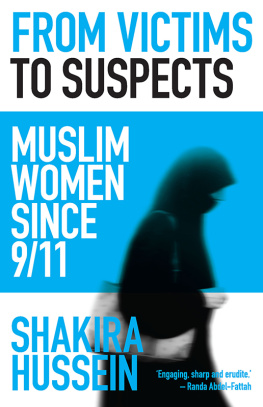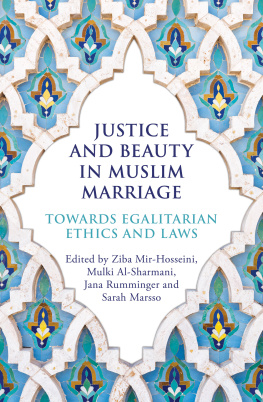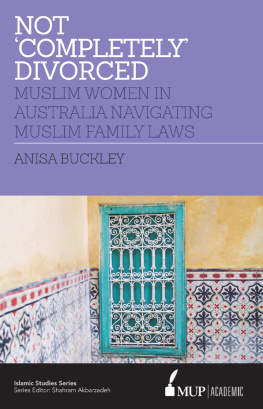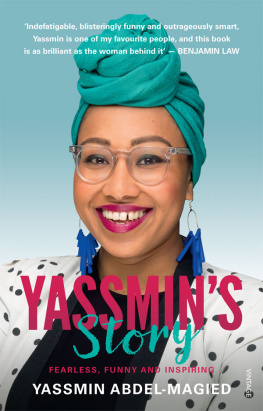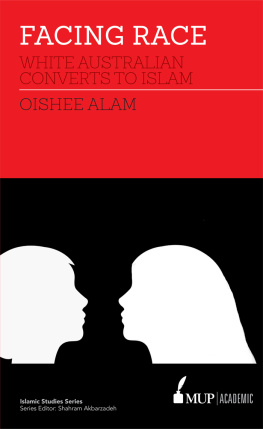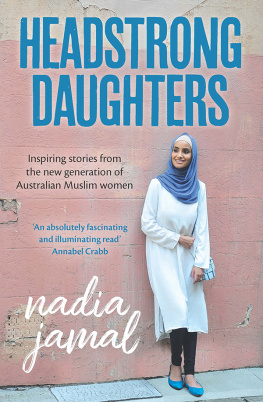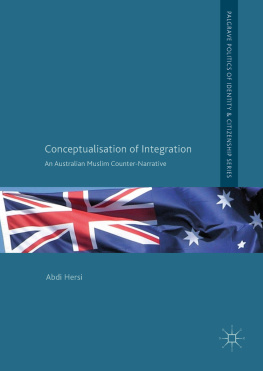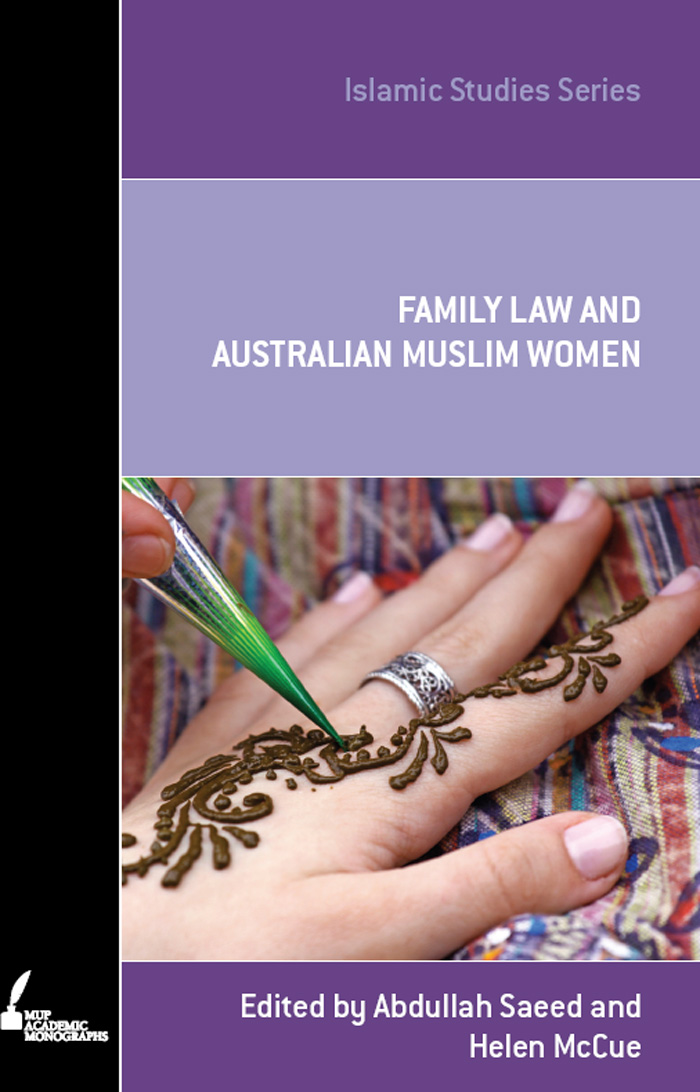Family Law and Australian Muslim Women
MUP ISLAMIC STUDIES SERIES
The Islamic Studies Series (ISS) is aimed at producing internationally competitive research manuscripts. This series will showcase the breadth of scholarship on Islam and Muslim affairs, making it available to a wide readership. Books in the ISS are based on original research and represent a number of disciplines including anthropology, cultural studies, sociology and political science. Books in the ISS are refereed publications that are committed to research excellence. Submissions on contemporary issues are strongly encouraged. Proposals should be sent to the ISS Editor.
Professor Shahram Akbarzadeh
ISS Editor (shahrama@unimelb.edu.au)
Board of Advisors
Associate Professor Syed Farid Alatas
Department of Sociology, National University of Singapore
Professor Howard V. Brasted
School of Humanities, University of New England
Professor Robert E. Elson
School of History, Philosophy, Religion and Classics, University of Queensland
Professor John Esposito
Director, Prince Alwaleed bin Talal Center for Muslim-Christian Understanding, University Professor of Religion and International Affairs, Georgetown University
Emeritus Professor Riaz Hassan AM, FASSA
Emeritus Professor of Sociology, Flinders University
Professor Robert Hefner
Institute on Culture, Religion and World Affairs, Boston University
Professor Michael Humphrey
Chair, Department of Sociology and Social Policy, School of Philosophical and Historical Inquiry, University of Sydney
Professor William Maley AM
Director, Asia-Pacific College of Diplomacy, Australian National University
Professor James Piscatori
Head, School of Government and International Affairs, Durham University
Professor Abdullah Saeed
Sultan of Oman Professor of Arab and Islamic Studies, Director, National Centre of Excellence for Islamic Studies, University of Melbourne
Professor Amin Saikal AM
Director, Centre for Arab and Islamic Studies (The Middle East and Central Asia), Australian National University
Professor Samina Yasmeen
Director, Centre for Muslim States and Societies, School of Social and Cultural Studies, University of Western Australia
Family Law and Australian Muslim Women
Edited by
Abdullah Saeed and Helen McCue

MELBOURNE UNIVERSITY PRESS
An imprint of Melbourne University Publishing Limited
1115 Argyle Place South, Carlton, Victoria 3053, Australia
mup-info@unimelb.edu.au
www.mup.com.au
First published 2013
Text individual contributors, 2013
Design and typography Melbourne University Publishing Limited, 2013
This book is copyright. Apart from any use permitted under the Copyright Act 1968 and subsequent amendments, no part may be reproduced, stored in a retrieval system or transmitted by any means or process whatsoever without the prior written permission of the publishers.
Every attempt has been made to locate the copyright holders for material quoted in this book. Any person or organisation that may have been overlooked or misattributed may contact the publisher.
Text design by Phil Campbell
Cover design by Phil Campbell
Typeset by J&M Typesetting
Printed in Australia by OPUS Group
National Library of Australia Cataloguing-in-Publication entry
Saeed, Abdullah, author.
Family law and Australian Muslim women/Abdullah Saeed and Helen McCue.
9780522862355 (paperback)
9780522862362 (eBook)
Includes bibliographical references and index.
Family lawAustralia.
Muslim womenAustralia.
Other Authors/Contributors:
McCue, Helen, author.
346.94015
Contents
Abdullah Saeed
Abdullah Saeed
Helen McCue
Ghena Krayem
Jamila Hussain
Anisa Buckley
Asmi Wood
Contributors
Anisa Buckley is a PhD candidate in Islamic studies at the Asia Institute and the Melbourne Law School at the University of Melbourne. Her thesis is on Muslim Women and Family Law.
Jamila Hussain is a senior lecturer in the Law Faculty at the University of Technology Sydney. She has a particular interest in multiculturalism and the integration of Muslims into broader Australian society.
Ghena Krayem is a solicitor and has completed her PhD at the University of Sydney, examining family dispute-resolution processes for the Muslim community in Australia. Ghena is currently a lecturer in the Faculty of Law, University of Sydney.
Helen McCue is an honorary research fellow at the National Centre of Excellence for Islamic Studies at the University of Melbourne, where she undertakes research on Islam, Muslims, and Muslim women and youth in Australia.
Abdullah Saeed is Sultan of Oman Professor of Arab and Islamic Studies at the University of Melbourne. His publications cover Quranic hermeneutics, Islamic finance, Islam in the West, Islam and human rights, reform of Islamic education and Islamic law
Asmi Wood teaches at the Australian National University College of Law and is the director of the Indigenous Students Support Scheme at the college. He is a barrister and solicitor of the Supreme Court of the ACT.
Introduction
Family Law and Australian Muslim Women explores the new and innovative approaches that Muslim women in Australia are using to address family law issues, and examines the intersection between Islamic and secular family law. The principal concern is family law within the Australian legal context, although contemporary developments in the realm of family law elsewhere are also discussed in the context of several Muslim majority countries, including Malaysia, Morocco and Pakistan.
This book is the result of discussions with scholars, academics and Muslim women who work in the community sector. The editors first sought contributions from scholars with knowledge in specific areas of family law, and then invited each contributor to present a proposed chapter outline for consideration and discussion at a seminar. Discussions continued as the authors developed their contributions to the book, to ensure continuity throughout. This book is not intended to be a collection of chapters, but rather a collaborative exploration of family law, with Muslim women as the focus.
This book commences with a brief reference to the changes in Islamic law that have taken place in the past, leading to present-day reforms. The identification of new processes of legal pluralism and legal accommodation in the West provide the reader with insight into the multiple ways that Australian Muslim women negotiate Australian family law and Islamic law in the key areas of marriage, divorce, property settlement and inheritance. Timely and significant insights are given into the various legal, cultural and social processes that Australian Muslim women turn to when disputes in these areas arise; the interpretation and implementation of Islamic family law are often contentious.
Over the past decade, many books have been published on the subjects of Islam, particular ethnic Muslim communities or population groups, and specific aspects of Muslim life in the West. However, few have addressed the issue of how Muslim women are negotiating Western legal systems and Islamic law, or examine the dispute-resolution processes that enable such negotiations to occur. There has also been little recognition of the processes that are enabling Muslim women to carve out an identity as a specific faith community in Western secular societies, while at the same time maintaining the essence of their Muslim identity.


